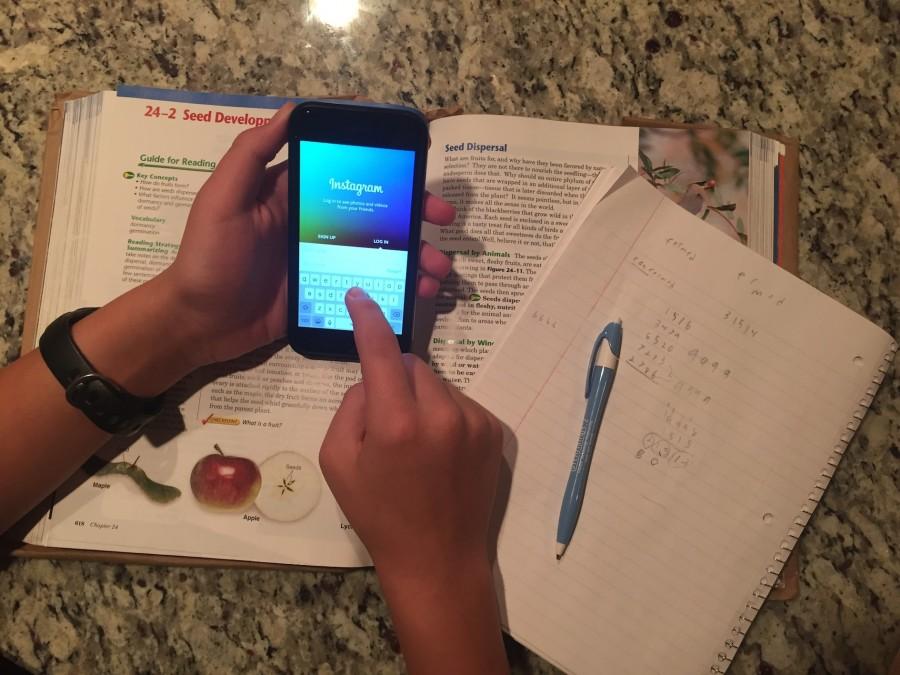Social media: asset or distraction?
While social media outlets such as Twitter can benefit student learning, it can often be a distraction from productivity.
November 25, 2015
The use of social media affects teens’ grades and productivity in school which develops positive and negative after-effects.
According to the Pew Research Center, 92 percent of teens go online daily, making social networking sites a major part of high school students’ lives in the 21st century.
“Social media is growing every single day to implement how students are learning…[It is] one avenue that connects students in a unique and different way,” history teacher Justin McKay said.
Social media provides a more flexible way to learn and communicate with others. Some educators have found ways to incorporate social media platforms into their teaching.
According to Principal Tom Mead, English teacher Seth Czarnecki and other teachers communicate with their students via Twitter providing information by answering students’ questions.
“As a vehicle, it’s perhaps more convenient than say email [and] in some instances than a teacher’s website; I think it can be enormously helpful,” Mead said.
“I like the idea of trying to meet students where they’re at,” Czarnecki said. “I think in a way it helps me promote what we’re doing in class and also engage with students a little bit less formally.”
According to many students and teachers, social media actually improves the students’ learning experience.
“I think social media has helped my academics, because I can always communicate with my friends about homework, and what we did in class,” freshman Nellie Zhang said. “They can help me to understand in different ways.”
Although positive academic results can come from social networking, it impacts students negatively as well by adding distractions and stress.
“If people are distracted, then they’re undermining their productivity in the classroom setting,” Mead said.
“People spend a lot of time on social media, and it can lead to procrastination,” senior Jennifer Warren said.
Faculty and students believe that social networking sites provide a major distraction to students, because of their addictive nature. When students are passionate about something, they are focused on it and cannot be easily distracted from it.
“If you’re a kid who is a runner or plays lacrosse, you aren’t [on] your phone tweeting cause you’re focused on something you love,” guidance counselor Rebecca Haberman said.
“When I practice the piano I don’t have social media on, so I don’t get distracted,” Warren said.
To Warren, school isn’t her passion, therefore it is easy to get distracted with social media while doing homework to her.
“Kids who have their phones next to them at night and don’t turn them off [do not] sleep all that well if at three in the morning they’re getting a tweet or text from somebody,” Haberman said.
Social media does not only negatively affect students sleep schedules, but also their mentalities.
“[It’s] very easy to put in negative comments [online],” Haberman said. “It’s just so in your face all the time that there’s no place to escape anymore.”











